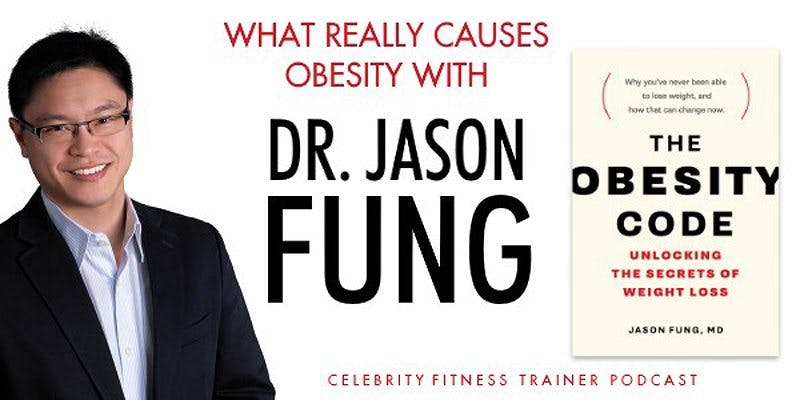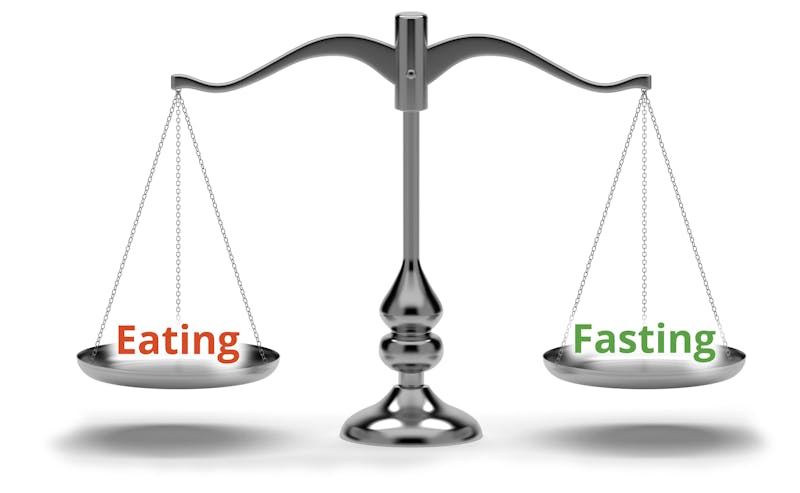Full Guide to Intermittent Fasting
Read This If You Are Trying to Lose Weight with Intermittent Fasting!
No matter what your motivation is losing weight is not ever easy. When trying to lose weight, some people might desire to trim down a specific body part, such as their stomach. Following a structured diet plan can help keep people stay on track and there are plenty of different diet plans around. One of these is intermittent fasting, intermittent fasting is thought to help people dieting meet their weightloss goals by focusing largely on when they eat.
Proponents of the intermittent fasting plan, also known as time-restricted eating, say that intermittent fasting could help people lose weight, which in our obese ridden society is always a worthwhile goal. Bottom line losing weight by intermittent fasting in the long-term, it might even help you live longer.
I’ll admit, the words “intermittent fasting” sound a little daunting. But Dr. Jason Fung, author of “The Obesity Code,” wrote a book that I’ve incorporated into my dieting routine that explained it so that I understood it. And for diabetics his book The Diabetes Code should be required reading as it discusses Intermittent Fasting extensively.

“Anytime you’re not eating is a fast — anything above four hours is fasting,” he said. “A lot of times people eat because they have to, versus really enjoying what they are eating. If you don’t want the sandwich, skip it. Your body knows what to do, it will take your body fat. In other words, by voluntarily abstaining from food for long periods during the day, your body will transition from burning sugar for fuel to burning fat.
At its very core, intermittent fasting simply allows the body to use its stored energy. For example, by burning off excess body fat.
Intermittent fasting is simply a highly effective tool for weight loss. However, like all tools, it must be employed correctly if you wish to get the job done right and for it to last which is a problem for most diet plans. In this article, we’ll look at some pointers that will show you how to get the best out of your intermittent fasting diet and provide some videos on what mistakes not to make.
• First ease into it
This is probably the most important point of the lot. Intermittent fasting is a style of eating that most people just aren’t used to. We are creatures of habit who eat throughout the day without a thought about whether we are hungry or not.
In intermittent fasting food is treated as therapy instead of fuel. We eat because we’re bored instead of because we’re hungry. When you adopt intermittent fasting diet into your daily or weekly routine you’ll only be allowed to eat during your eating windows.
Fasting can be tough at first. So, you’ll need to slowly ease into in. When you’re starting off, your eating window may be 10 hours long. As you get accustomed to it, you can shorten the window till you reach 8 hours which is the recommended duration. Your body quickly adapts to it though and after a couple of weeks you really stop thinking of snacking and not eating.
• Choose a intermittent fasting method that suits you
There are different types of intermittent fasting. The 16/8 style requires you to fast for 16 hours, while the Warrior style requires you to fast for 20 hours and so on. There are different methods of intermittent fasting, but the core principles are the same for both. You fast for longer periods than you eat. Choose a method that agrees with your lifestyle.
• Hydrate often
This goes without saying. You need to drink often to accelerate the fat loss process. Water, still or sparkling, coffee and tea are your friends. Your weight loss may temporarily slow down and fluctuate as you hydrate as liquids do add weight, however your body can only absorb so much and what it can’t handle it will get rid of, taking with it toxins and sugars from the body.
• Maintain a caloric deficit
There is some debate here. Most people believe that even with intermittent fasting, you need to be at a caloric deficit to see weight loss. To calculate how many calories you need to consume a day, you can use this online calorie calculator: https://www.freedieting.com/tools/calorie_calculator.htm
Others say that your body doesn’t know what a calorie is, that it is the actual weight of the food you eat that affects your weight.
Intermittent fasting gives you more flexibility and you’ll be allowed to consume more carbs because the insulin spikes will be limited to the eating window and your blood sugar levels will be stable throughout the fasting period. If you are on a keto diet or trying to attack type II diabetes and intermittent fasting you should still skip the carbs even though for others they won’t be as harmful.
• Cheat days follow the eating windows too!
Some people have cheat meals while others have cheat days. Whichever way you decide to go, always remember that you’ll still follow the eating and fasting windows even on your cheat days. This will prevent your body’s blood sugar levels from spiking wildly. So, eat and enjoy the foods you love, but just do it within your eating window. As you get into it though you’ll find your cravings for certain foods will change.
Observe these pointers and your weight loss journey will be smoother with intermittent fasting. You’ll also avoid the pitfalls that trip most other people up. It is a simplya tool you can use to help you achieve your goals faster.
5 Reasons Why Intermittent Fasting Accelerates Weight Loss
It is highly effective for weight loss and it has several other health benefits too. Now we’ll look at 5 reasons why intermittent fasting accelerates fat loss and why it should be something that you should consider adopting if you wish to shed the excess pounds fast.
A. It lowers inflammation
Inflammation is the leading cause of heart disease and many other health issues. The biggest culprit is sugar and it creeps into many different foods without you even realizing it. More people now than ever before are suffering from diabetes or are in the prediabetic stage. Intermittent fasting can reduce inflammation greatly. Since you’re only eating during a short eating window, you’ll not be constantly feeding your body with harmful foods throughout the day that add sugar to your system.
As a result, the inflammation in your body will subside. You may see some water weight bulge but it is actually healthy for you, and as I mentioned earlier your body will expel what it can’t absorb. When your body is inflamed, it will not burn fat effectively. The cells in your body will not be communicating well with each other due to the inflammation.
B. Promotes ketosis and fat loss
Intermittent fasting promotes ketosis in the body. Most people have no idea what ketosis is. In simple words, it’s the body tapping into the fat stores for fuel. Those on a keto diet should understand this. One way to help your body achieve ketosis faster is to give it a kickstart with a BHB salt supplement like Nutriflair Keto with MCT oil or Keto 2000.
The biggest struggle most people face when losing weight is due to something that occurs that they aren’t even aware of that they often confuse calories with. Your body burns glucose for fuel. It gets its glucose from the carbs that you consume. Since people eat from the time they wake to the time they sleep, the body constantly has a supply of glucose to burn for fuel. Even if you exercise and watch your diet, it still uses the glucose in your body first.
When you’re doing intermittent fasting, the 16 or 20-hour fasting window will ensure that all glucose and glycogen stores are used up in a few hours. Now, your body has no glucose for the remaining hours till you eat next. Your body will stop burning glucose and start tapping into its fat stores 4-6 hours after you have stopped eating.
So, it has no choice but to burn its fat stores for fuelgiven your body anything to use. Your body is effectively burning fat when ketosis sets in… and this is why intermittent fasting is so powerful. It gets the body to burn fat.
C. Intermittent fasting stabilizes blood sugar levels
Whenever you eat, your body will release insulin. This encourages fat storage and prevents your body from burning fat. Intermittent fasting ensures that your blood sugar levels are stable… and your body can effectively torch the fat without being set back by insulin spikes. This is one reason why so many endrocronolgists like Dr. Fung are advocates of intermittent fasting.
D. It reduces appetite
Intermittent fasting will reduce your appetite. When you’re fasting for 16 hours a day, your body will adapt and require less food. Maintaining a caloric deficit will become easier after a couple of weeks and you’ll lose weight faster.
E. Intermittent fasting increases energy
Intermittent fasting has been shown to increase energy levels. That’s good news. It means you’ll be able to perform better during your workouts and burn more calories, which translates to higher overall fat loss.
By now, you should be convinced of just how potent intermittent fasting is. Make it a part of your lifestyle and you’ll never look back.

The results of intermittent fasting can really be astounding. Since intermittent fasting isn’t a diet but rather a pattern of eating or a way to schedule your meals so that your body gets the maximum benefit out of each meal, it’s easier for people to follow after a couple of weeks.

Not just for overweight people.
Athletes can benefit also. If you’re wondering why a way of eating that has the word “fasting” in the title can help you as an athlete, the answer is that there are many amazing benefits of fasting.
There are many ways that intermittent fasting can work so well. Dr. Jason Fung believes it leads to your body fat going down, you can have more energy, and you will have better focus. According to Healthline, intermittent fasting will lower inflammation (which is great for reducing your chances of disease) and your cells are able to restore themselves. All of these things athletes can benefit from.
Intermittent fasting benefits
Intermittent fasting’s most obvious benefit is weight loss. An interesting point to intermittent fasting is that it can actually alter your genes which lowers disease risk and is said to help you live longer. James Clear notes that you could have less of a risk of getting cancer along with an increased lifespan. How can you live longer by eating twice a day and waiting 16 hours to eat again? As he says, “Scientists have long known that restricting calories is a way of lengthening life. From a logical standpoint, this makes sense. When you’re starving, your body finds ways to extend your life.” The best news about intermittent fasting is you will be fasting for a time but also eating.
However, there are a many potential benefits beyond this, some of which have been known since ancient times. Fasting periods were often called ‘cleanses’, ‘detoxifications’, or ‘purifications’, but the idea is similar – e.g. to abstain from eating food for a certain period of time, often for health reasons. People imagined that this period of abstinence from food would clear their bodies’ systems of toxins and rejuvenate them. Think of lent. The monks who first practiced fasting may have been more correct than they knew.
Some of the purported health benefits of intermittent fasting include:
- Weight and body fat loss
- Increased fat burning
- Lowered blood insulin and sugar levels
- Possible reversal of type 2 diabetes
- Possible improved mental clarity and concentration
- Increased energy
- Possible increased growth hormone, at least in the short term
- An improved blood cholesterol profile
- Possibly a reduction in the risk of Alzheimer’s disease
- Possibly longer life
- Possibly activation of cellular cleansing by stimulating autophagy
- Reduction of inflammation
Intermittent Fasting offers many important unique advantages that are not available in typical diets.
Where diets can complicate life, intermittent fasting may make it simple. Where diets can be expensive, intermittent fasting can be free or lower your food bill. Where diets can take time, fasting works fast. Where diets may be limited in their availability, fasting is available anytime you choose. And as discussed earlier, fasting is a potentially powerful method for lowering insulin and decreasing body weight.

Intermittent Fasting: Yay or Nay?

However, it’s not something that anyone and everyone can adopt without risk. When you’re on an intermittent fasting plan, you’ll have 2 windows – the eating window and the fasting window.
The most common style of Intermittent fasting has an 8-hour eating window and a 16-hour fasting window. During your fasting window, you’ll aren’t allowed to eat anything, but you can and should be drinking liquids. During your eating window, you’ll need to consume all your food for the day.
So, the only problem with this plan is that people who have stomache issues or are diabetic (may experience blood sugar dips) might have problems for type II diabetics taking the reduced sugar levels can eventually lead to a reduction is your insulin dosage but it is something to monitor . Always speak to your doctor and see if it’s safe for you to give intermittent fasting a try.
What intermittent fasting does, is that it forces your body to burn fat from the fuel stores. Since the body has no food to use as fuel, it will tap into its fat stores for fuel… and that is how your stubborn fat gets burned up.
• Intermittent Fasting Stabilizes Blood Sugar Levels
Intermittent fasting also keeps your blood sugar levels stable for most of the day. If you’re eating throughout the day from dawn to dusk, your blood sugar levels will be all over the place and your body can’t burn fat if there is sugar (glucose) in the blood. It will use the sugar first. So, you’re impeding your fat loss.
Intermittent fasting will gradually reduce your cravings and appetite too. You’ll notice that you feel less hungry and don’t have as many food cravings anymore. This is a giagantic benefit to people who are struggling to lose weight because food is always on their mind. After a couple of weeks your cravings often go away.
• Intermittent Fasting Reduces Inflammation
• Intermittent Fasting Boosts Your Metabolic Rate
You may notice that after 2 or 3 weeks of intermittent fasting you may have more energy. This is one of the benefits of intermittent fasting. It increases your energy levels and boosts your metabolic rate.
It may seem strange that eating during a short window actually leaves you feeling more energized than sluggish. However, digestion is a ‘tiring’ process. We all know after a big meal you want to lay down and take a nap. When you’re eating during a short window, your stomach and digestive process only works for a short while. It has time to rest after that. So, your energy is conserved because it’s not being spent digesting food..
As you can see by now, intermittent fasting is definitely a yay, and not a nay. It’s one of the best tools to lose weight. Give it a try and stick with it for 3 weeks and you’ll be amazed at the results.
So if you are still reading I know you’re interested in starting intermittent fasting, or maybe you have a family member or friend that’s interested in starting it. Well, these videos are going to help reinforce what you’ve just read. The great thing is intermittent fasting is really easy to get started on. You can start right now.
Simply put, intermittent fasting isn’t a diet. Intermittent fasting is a meal timing plan. So basically what you’re doing is you’re focusing on a specific period of time in which you are abstaining from food and abstaining from calories and then you have a set period of time in which you consolidate all of your food, all of your calories. You’re basically going for an extended period of time and not eating fasting. And then you’re going into a period of time where you are eating, your eating window. So one of the biggest problems that people make with fasting is they overthink it, okay? It is not that hard.
People tend to complicate things. And it’s human nature for us to do that. So you really need to keep it very, very simple. Intermittent fasting is just not eating for a set period of time and then consolidating your calories. There’s a lot of different intricacies in between, but for all intensive purposes that’s the goal.
So I hope this overview has given you a solid perspective on what intermittent fasting is and what intermittent fasting is not. Honestly, it’s for everybody. You can use intermittent fasting with a keto diet. You can use intermittent fasting with a paleo diet, being a vegan or whatever you want. Intermittent fasting is the about what you are are not eating versus what you are eating.
And I want to make sure that you check out the plethora of videos that are on my channel that teach you the different intricacies, and the different little things you need to pay attention to when it comes down to intermittent fasting or prolonged fasting. Thanks for watching. Please make sure you subscribe. See you in the next video.
https://affordablesupplements.com/full-guide-to-intermittent-fasting/


0 Comments:
Post a Comment
<< Home